The violinist discusses long-standing musical friendships, the lyrical intensity of Chausson’s Concert and the overlooked brilliance of Germaine Tailleferre.
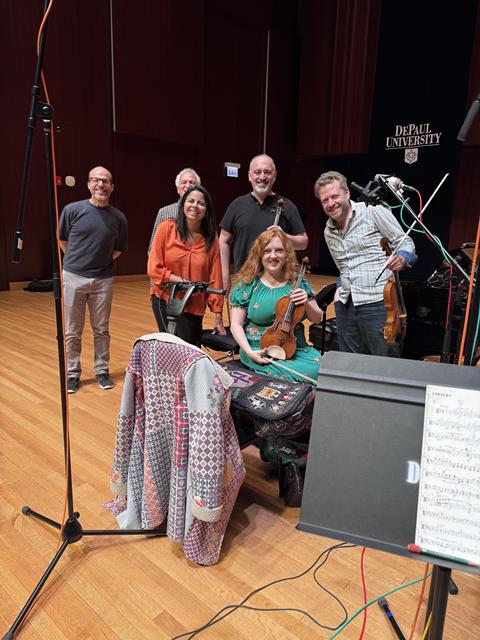
Discover more Featured Stories like this in The Strad Playing Hub
With her 25th release on Cedille Records, French Impressions, US-American violinist Rachel Barton Pine realises a long-held dream. She teams up with pianist Orion Weiss and the Pacifica Quartet to bring fresh perspective to the music of Ernest Chausson and Germaine Tailleferre – composers whose distinct styles share a gift for lyricism and an ear for the unexpected.
At the heart of the album is Chausson’s Concert for violin, piano and string quartet – a hybrid work that straddles the line between chamber music and concerto, offering violinists a rare chance to collaborate with a full string quartet. Alongside it are three pieces by Tailleferre, the only female member of Les Six, whose voice blends graceful French clarity with harmonic twists that keep listeners guessing.
For Pine, French Impressions is not only a celebration of overlooked repertoire but also of long-standing artistic friendships. She first connected with members of the Pacifica Quartet during her student days, and their shared musical language adds ease and depth to the performances. Weiss, a frequent collaborator, brings finesse and quiet authority to the piano writing, helping anchor the ensemble with warmth and precision.
In this interview with US correspondent Thomas May, Pine discusses the joy of finally recording this repertoire, the balance of grandeur and intimacy in Chausson’s Concert, and the expressive surprises woven into Tailleferre’s music. She reflects on the challenges of aligning busy schedules and on how parenting a young composer has deepened her insight into marginalised voices. The result is a heartfelt recording that champions camaraderie, curiosity, and a love of French colour.
What made you decide now is the right moment to realise your long-held dream of recording French chamber music?
Rachel Barton Pine: The recording sessions were a happy surprise! Orion, the Pacifica, and I had had this project on our wish list for a number of years, but with all of us being very busy, it was challenging to coordinate schedules. However, we suddenly realised that we all had a few days off at the same time. We quickly got in touch with the producer, he procured the engineer and venue, and it was a go! Unlike many recording sessions that are scheduled a year or two in advance, this all came together in just a couple months, and we were all thrilled.
What does chamber music give you as a performer that solo concertising doesn’t?
Rachel Barton Pine: I love solo performances, whether concertos or recitals, because it’s a chance to explore and share my personal voice. On the other hand, playing chamber music helps me continue to grow as an artist by learning about colleagues’ ideas and trying them out. Being one part of a greater whole is musically rewarding in a different way. Blending in with one of my favourite ensembles, the Pacifica Quartet, was just as rewarding as I had always imagined.
You’ve known members of the Pacifica Quartet since your student days. How did that long history shape the rehearsal and recording process? Did anything surprise you musically?
Rachel Barton Pine: It’s always great to work with colleagues who happen to be truly nice people and long-time friends, where hanging out between rehearsals is a special social reunion. Coming from the same musical background during our formative years, and being very familiar with each other’s artistry from performances and recordings, our ideas blended together extremely easily.
Orion Weiss is another long-time collaborator. What qualities does he bring to this repertoire – what made him the right pianist for this project?
Rachel Barton Pine: Orion is also a super nice person with incredible stamina. I think that what we – the musicians and the recording team – were all the most impressed with was that no matter how exciting and dense his part was, he always had excellent rhythm and amazing clarity while still being really expressive. And he kept nailing it in take after take!
Read: Rachel Barton Pine: ‘What we’re doing today is the history of tomorrow’
Watch: Rachel Barton Pine and her daughter share two pieces from ‘Music by Black Composers’
What sparked your desire to record Chausson’s Concert in particular – a fascinating composition somewhere between chamber music and concerto – and why now?
Rachel Barton Pine: Of all the chamber works ever written, it’s always especially gratifying to get to play the Chausson, because it’s one of the few works that exist for string quartet with an extra violinist. There are plenty of chamber works for string quartet with an extra violist or cellist (and I frequently perform their violin parts as part of ad hoc ensembles at festivals), but we violinists don’t often get the pleasure of collaborating with an entire formed string quartet. I’ve enjoyed every time I’ve gotten to perform it, including with the Parker Quartet, Avalon Quartet, and others, and recording it has been on my wish list for a long time. The fact that it finally happened now was just good luck!
How did you balance the Concert’s unusual blend of intimacy and grandeur for this recording?
Rachel Barton Pine: As with any recording project that’s not unaccompanied, the energy from your fellow musicians helps you create an emotional performance even in the absence of an audience, but the imaginary audience is always in the back of your mind. That’s the beauty of chamber music – it’s a personal conversation among friends, but also something that you are simultaneously sharing with listeners. For this particular repertoire, I’m glad that we were on a stage and not in a studio, because the setting definitely helped maintain this balance.
Germaine Tailleferre may be less familiar to listeners. What interests you most about her voice, and what do you think makes her music stand out among the French composers of her time?
Rachel Barton Pine: There are so many wonderful French composers from this era, and I can’t argue that Tailleferre is better than others. But — and this is very important to remember — she’s certainly every bit as good! And since she’s underrecognised compared to many of her (male) colleagues, I love that I have a chance to help bring greater recognition to her music.
As the parent of a 13-year-old daughter who has been a serious aspiring composer for most of her life, it’s been enlightening to see Sylvia navigate mostly male spaces within the world of composition. It’s fascinating that Tailleferre was doing so a century ago and succeeding so well, both artistically and professionally.
You’ve said Tailleferre’s music feels both familiar and unexpected. Could you give an example of that from one of the works on the album?
Rachel Barton Pine: The second movement of her second violin sonata is so gorgeous. It doesn’t have melodies that are easily hummable like the two short pieces we included (Pastorale and Berceuse), but the lyrical lines unfold in a way that feels like what you might expect. However, the harmonies underneath can be surprising! The faster outer movements have catchy phrases that can end up being longer or shorter than what you might anticipate, and then they make interesting shifts to new ideas that always keep you on your toes.
What do you hope listeners take away from French Impressions?
Rachel Barton Pine: For people who only know Chausson from his Poème, I hope that they are blown away by his unique chamber music masterpiece. For people who haven’t heard Tailleferre’s music, or maybe haven’t even heard of her at all, I hope that this taste of her output inspires people to seek out more of her works. I hope that everyone who hears our performances enjoys our interpretations. Lastly, I hope that my fellow heavy metal fans will get a chance to hear the Concert’s Grave movement, because it’s totally doomy!
French Impressions: Chamber Music by Chausson & Tailleferre was released 11 July on Cedille Records.
Listen: The Strad Podcast Episode #32: Rachel Barton Pine and Billy Childs on a new violin concerto
Read: The Strad Recommends: Rachel Barton Pine: Corelli
Discover more Featured Stories like this in The Strad Playing Hub
The number one source for playing and teaching books, guides, CDs, calendars and back issues of the magazine.
In The Best of Technique you’ll discover the top playing tips of the world’s leading string players and teachers. It’s packed full of exercises for students, plus examples from the standard repertoire to show you how to integrate the technique into your playing.
In the second volume of The Strad’s Masterclass series, soloists including James Ehnes, Jennifer Koh, Philippe Graffin, Daniel Hope and Arabella Steinbacher give their thoughts on some of the greatest works in the string repertoire. Each has annotated the sheet music with their own bowings, fingerings and comments.
The Canada Council of the Arts’ Musical Instrument Bank is 40 years old in 2025. This year’s calendar celebrates some its treasures, including four instruments by Antonio Stradivari and priceless works by Montagnana, Gagliano, Pressenda and David Tecchler.

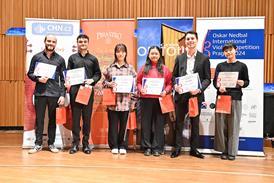
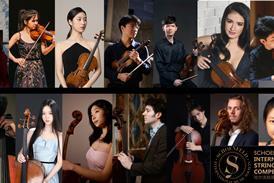
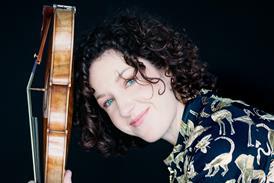
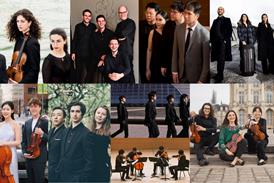
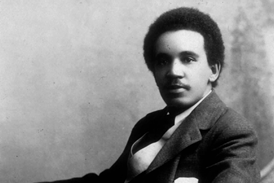
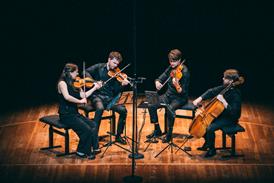


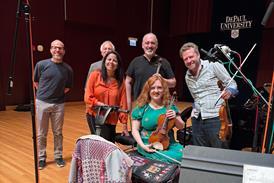
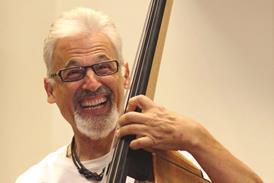
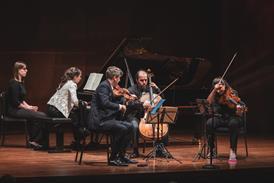
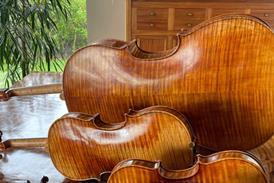
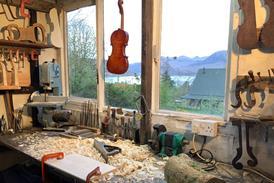
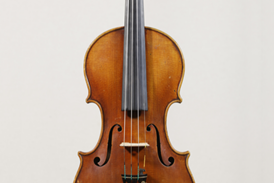
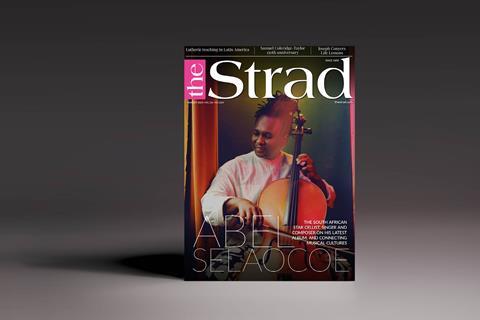




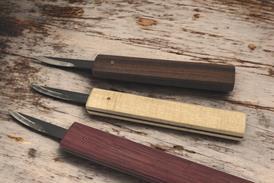

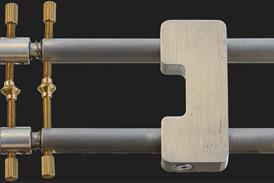















No comments yet